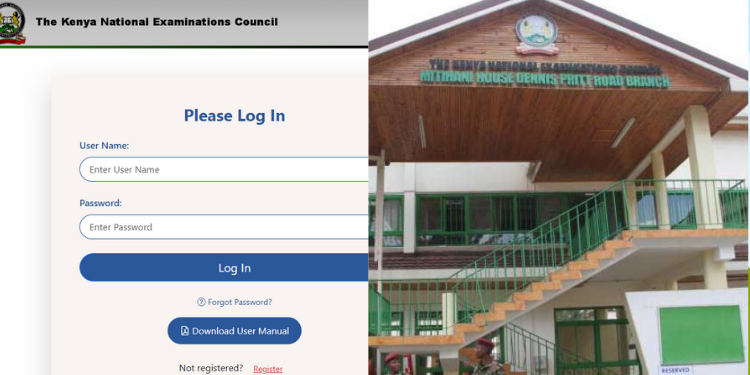The Kenya National Examinations Council (KNEC) has laid out clear steps and requirements to ensure only qualified candidates sit for the exams.
When the registration window for Technical and Vocational Education and Training (TVET) examinations opens, many students often wonder where to start and what exactly is needed.
Each student must also meet the minimum entry requirements depending on the course they wish to pursue.
Requirements for Students
Students applying for Artisan courses or the National Vocational Certificate in Education and Training (NVCET) – Level 1 must have completed their KCPE.
If a student wishes to take a Certificate course, they must present at least a KCSE mean grade of D (Plain), a pass in a relevant Artisan course, or equivalent qualifications such as KCE Division III or IV and EACE Division IV with passes in cluster subjects.
Candidates eyeing Diploma courses need a minimum KCSE mean grade of C- (minus), a credit pass in relevant KCE/EACE divisions, or a pass in a related Craft/Certificate course.
For those already holding a Diploma and seeking to specialize further, Higher Diploma courses are open, provided one has passed a relevant Diploma or its equivalent.
How to Register for TVET Examinations with KNEC
1. Confirm Eligibility
- You must be enrolled in a KNEC-recognized TVET institution.
- Your course should be examinable by KNEC (e.g. Artisan, Craft, Diploma, Higher Diploma).
- Registration Process
- Institutional Registration
- TVET students cannot register as private candidates.
- Registration is done through your training institution, which must be accredited by TVET-CDACC/KNEC.
Also Read: Step-by-Step Guide to Applying for KNEC Teacher Exams
2. Provide Required Documents
You will be asked for:
- Copy of your National ID / Birth Certificate.
- Recent passport-size photographs.
- Copies of your academic certificates/results slips (for continuing students).
- Filled registration form issued by the institution.
- Payment of Exam Fees
- Fees are paid through the institution to KNEC.
- Each candidate pays basic fees plus subject fees depending on the level (Artisan, Craft, Diploma, Higher Diploma).
- Your institution will give you the correct KNEC bank account details and deadlines.
3. Registration Timelines
- KNEC usually announces deadlines at the beginning of each year.
- Institutions must upload candidate details on the KNEC registration portal within the given timelines (often in February–March for July exams, and August–September for November exams).
4. Confirmation of Registration
- After submission, your institution will generate an exam registration printout.
- You must verify your details (names, subjects, and photos) and sign against them to confirm.
5. Issuance of Examination Numbers
- KNEC will issue an examination index number through your institution.
- This is the number you’ll use during your exams.
Also Read: Inside the Process of Becoming a KNEC Examiner
2024 – 2025 KNEC Technical / TVET Examinations Fee Structure
Below is the fee structure for KNEC Technical and TVET examinations for the 2024–2025 period, outlining the costs for various levels and categories of candidates.
Artisan
- Basic Fees per candidate: Ksh 480
- Paper Fees: Ksh 500
- Project: Ksh 400
- Practical: Ksh 400
Craft
- Basic Fees per candidate: Ksh 1,200
- Paper Fees: Ksh 1,000
- Project: Ksh 450
- Practical: Ksh 450
Diploma
- Basic Fees per candidate: Ksh 1,500
- Paper Fees: Ksh 1,350
- Project: Ksh 450
- Practical: Ksh 450
Higher Diploma (New syllabus)
- Basic Fees per candidate: Ksh 1,600
- Paper Fees: Ksh 1,600
- Project: Ksh 450
- Practical: Ksh 450
Higher Diploma (Old syllabus – Technical)
- Basic Fees per candidate: Ksh 1,600
- Paper Fees: Ksh 1,700
- Project: Ksh 450
- Practical: Ksh 450
Follow our WhatsApp Channel and X Account for real-time news updates.




















































![Senator Allan Chesang And Chanelle Kittony Wed In A Colourful Ceremony [Photos] Trans Nzoia Senator Allan Chesang With Channelle Kittony/Oscar Sudi]( https://thekenyatimescdn-ese7d3e7ghdnbfa9.z01.azurefd.net/prodimages/uploads/2025/11/Trans-Nzoia-Senator-Allan-Chesang-with-Channelle-KittonyOscar-Sudi-360x180.png)























